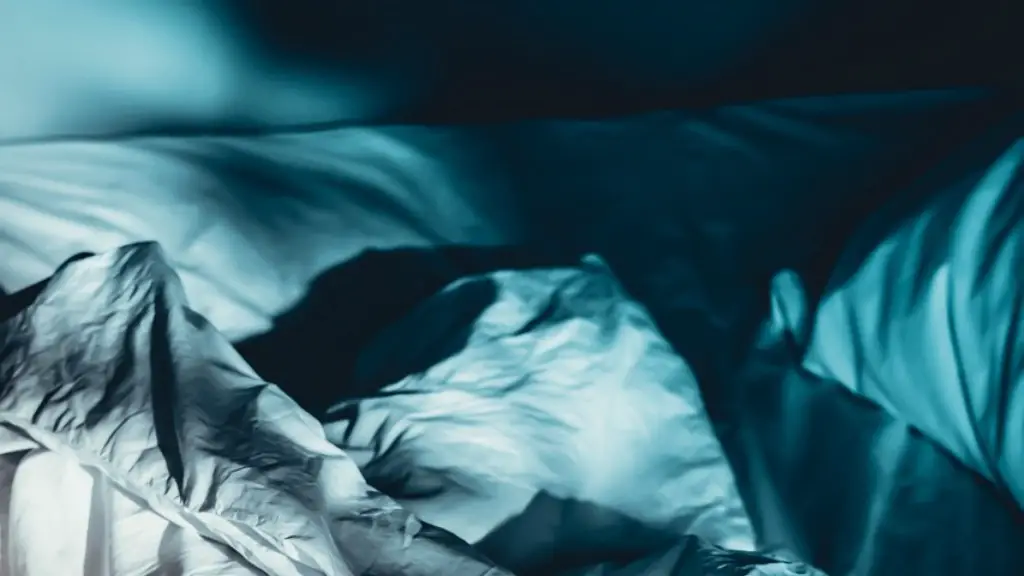Our experience of touch is intimately linked with our nervous system and brain. The sense of touch is one of the most basic and important ways that we interact with and understand the world around us. Dreams are mental experiences that occur during sleep. Although the content of dreams can be quite outlandish, they often contain elements of our everyday reality. So, can you feel touch in dreams?
There is some evidence to suggest that you can. One study found that people who reported being able to feel touch in their dreams also had higher levels of nerve growth factor (NGF) in their bodies. NGF is a protein that helps to promote the growth and development of nerve cells. This suggests that people who can feel touch in their dreams may have a stronger connection between their nervous system and brain.
While the evidence is still preliminary, it is interesting to think about the possibility that we can experience touch in our dreams. What would it be like to feel the touch of a loved one or the sensation of being hugged in a dream? Dreams are a fascinating glimpse into the workings of our mind and the potential of our human experience.
Yes, you can feel touch in dreams. When you dream, your brain is active and you can experience all the senses, including touch. Dreams feel real because your brain is creating the images and sensations that you experience.
What does it mean when you can feel someone touching you in your dreams?
There is no one definitive interpretation of dreaming about touch, as it could mean something different for each person. However, some people interpret it as meaning that you are coming to grips with your feelings and comforting yourself. It’s possible that dreams could mean nothing, or everything, depending on the person who is having them.
Tactile hallucinations are a type of hallucination that involve the sense of touch. People who experience tactile hallucinations may feel like they are being touched, even when there is no one there. This can be a very frightening experience, especially if it happens during sleep paralysis.
Can you feel touch in lucid dreams
A lucid dream is a type of dream where you are aware that you are dreaming and can control your actions and thoughts. Your senses are heightened in a lucid dream, which means that sight, sound, smell, taste, and touch are all more extreme than what you would experience in real life. Emotional feelings may also be intensified in a lucid dream, which can lead to a greater sense of happiness and pleasure from engaging in enjoyable activities.
If you think you’re seeing things when you’re asleep, it’s possible that you’re experiencing hypnagogic hallucinations. These hallucinations can occur when you’re falling asleep or waking up, and they can be very realistic. If you’re waking up in extreme fear that your hallucination was real, it’s more likely that you’re experiencing a hypnagogic hallucination.
What is it called when you feel like you’re in a dream but you’re not?
Derealization is a feeling of disconnection from your surroundings. You may feel like you’re living in a dream or a movie. Symptoms of derealization include feeling alienated from or unfamiliar with your surroundings. If you’re experiencing derealization, you may feel like everything around you is unreal or dreamlike. You may also have trouble focusing or paying attention. Derealization can be a symptom of anxiety, depression, or post-traumatic stress disorder. If you’re experiencing derealization, talk to your doctor or a mental health professional.
This is an interesting finding! It suggests that there may be a way to communicate with people who are asleep and dreaming, specifically those who are lucid dreaming. This could have implications for dream research and for helping people who have difficulty communicating in their dreams.
Can you feel anything while sleeping?
There are a few things that can cause these involuntary muscle movements during sleep, including:
-Sleep deprivation
-Stress
-Anxiety
-Certain medications
-Caffeine
-Alcohol
If you’re experiencing sleep myoclonus, it’s important to talk to your doctor to rule out any underlying medical conditions. In most cases, however, sleep myoclonus is harmless and doesn’t require treatment.
Sexsomnia is a rare sleep disorder in which a person engages in sexual behaviour while asleep. It is unclear exactly how often sexsomnia occurs, as it is often under-reported. However, one study found that 7.6% of people reported experiencing sexsomnia at least once in their lifetime.
There are a number of possible causes of sexsomnia, including sleep deprivation, alcohol or drug use, and certain medications. Stress and anxiety may also play a role.
If you think you may be experiencing sexsomnia, it is important to see a doctor or sleep specialist to rule out other possible sleep disorders. Treatment for sexsomnia often involves making changes to your sleep habits and environment. In some cases, medication may be necessary.
Why can’t you scream in dreams
The inability to scream, as well as run or punch someone in your dream, is caused by the brain areas that control motor neurons being switched off during sleep, according to certified sleep expert Julie Lambert from Happy Sleepy Head. Motor neurons are responsible for any muscle contractions, so without them we are unable to move or make any noise in our dreams.
Recent studies have shown that lucid dreaming often occurs during moments of high arousal, or change in brain wave activity, in the outer layer of the brain. Recognition of dreaming may occur specifically in the dorsolateral prefrontal cortex, where working memory, planning, and abstract reasoning occur.
What does it feel like when you enter a lucid dream?
Lucid dreams are fascinating! It’s amazing to think that you can be aware that you’re dreaming while you’re asleep and actually have some control over the dream. It can definitely feel very real. If you’re interested in exploring lucid dreaming, there are some things you can do to try to induce them, like keeping a dream journal or trying to reality check throughout the day.
Epic dreaming is a dreaming disorder that is characterized by never-ending and exhausting dreams. This can lead to morning tiredness and chronic daytime fatigue. This condition is much more common in women than men (85%). If you think you may be suffering from epic dreaming, it is important to talk to a doctor or sleep specialist to get a proper diagnosis and treatment plan.
What is it called when you have a dream and then it happens
Precognitive dreams are dreams that seem to be predicting future events. The most widely reported occurrences of precognition are usually in the form of a dream or vision. Often, a dream or vision can only be identified as precognitive after the putative event has taken place. This is because only after the event happens can we look back at the dream or vision and say with certainty that it was indeed precognitive. When an event that was foretold in a dream or vision does occur, it is said to have “broken the dream”.
Lucid dreaming is a state of consciousness in which the dreamer is aware that they are dreaming and can control the dream plot. Dissociation occurs when the dreamer experiences the dream as feeling unreal or seeing themselves from a distance. Lucid dreaming can be a useful tool for managing stress and anxiety, as well as exploring the subconscious mind.
What is somatic dreaming?
Though Freud does not deny that such somatic sources can influence the content of our dreams, he argues that they do not determine the dream’s overall meaning. Rather, the somatic source is just one of many factors that contribute to the dream’s formation. Freud suggests that the dream’s true meaning is determined by the unconscious mind, which is often trying to communicate something to the dreamer that they are not aware of.
Lucid dreaming is a fascinating phenomenon that has been the subject of much research over the years. Essentially, it occurs when you are aware that you are dreaming and often, you can control the dream’s storyline and environment. Lucid dreaming usually occurs during REM sleep and when used in therapy, it can be an incredibly effective tool for treating conditions like recurring nightmares and PTSD. Some researchers also think that lucid dreaming might be able to help with physical rehabilitation, as it can help the brain to re-learn movement patterns.
What happens when you ask what time it is in a dream
When someone asks you the time in your dream, it is often a symbol for them wanting guidance or insight into a particular situation. The time is often seen as a symbol for the passage of time, so asking for the time in your dream can be interpreted as a person’s desire to know what the future holds.
If you have a dream that continues like this or a serial dream or a repetitive dream, it’s a good indication that your unconscious is anxious about something that’s happening in your waking life. Try to take some time to identify what might be causing this anxiety and address it head-on.
Conclusion
From what I have researched, it appears that people CAN feel touch in dreams. When someone is dreaming, their brain is still active and sending out signals. It is these signals that create the sensation of touch.
There is no scientific consensus on whether or not people can feel touch in dreams, but there are some theories that suggest it might be possible. One theory is that when we dream, our brain activity is similar to when we are awake, and so we may be able to experience sensations in our dreams that are similar to those we feel when we are awake. Another theory is that our brain interprets touch differently when we are dreaming, and so we may feel sensations that are not necessarily like those we feel when we are awake. whichever the case may be, it is fascinating to consider the possibility that we may be able to feel touch in our dreams.





